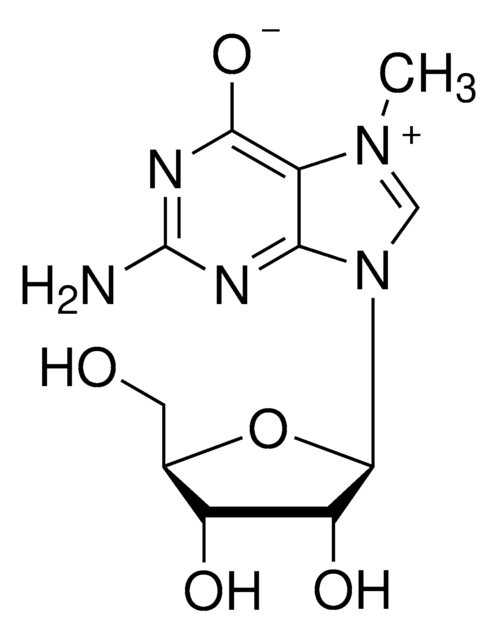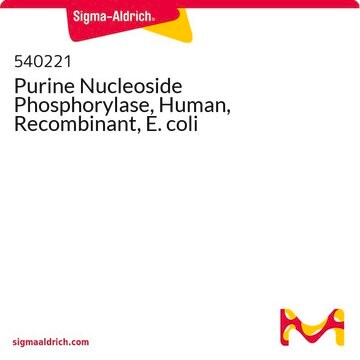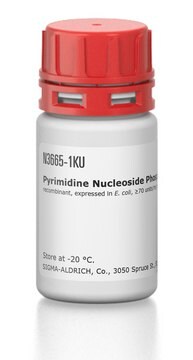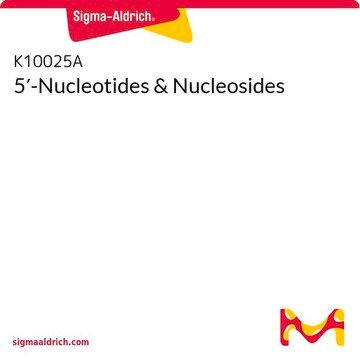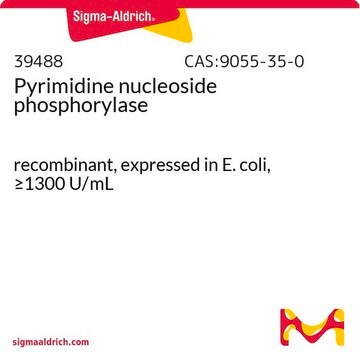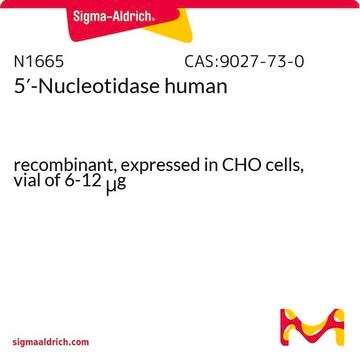N2415
Nucleoside Phosphorylase bacterial
recombinant, expressed in E. coli, ≥10 units/mg protein
Synonym(s):
PNP, Purine nucleoside phosphorylase, Purine nucleoside:orthophosphate ribosyltransferase
About This Item
Recommended Products
recombinant
expressed in E. coli
Quality Level
Assay
≥80% protein basis (biuret)
form
lyophilized powder
specific activity
≥10 units/mg protein
sequence note
MATPHINAEMGDFADVVLMPGDPLRAKYIAETFLEDAREVNNVRGMLGFTGTYKGRKISVMGHGMGIPSCSIYTKELITDFGVKKIIRVGSCGAVLPHVKLRDVVIGMGACTDSKVNRIRFKDHDFAAIADFDMVRNAVDAAKALGIDARVGNLFSADLFYSPDGEMFDVMEKYGILGVEMEAAGIYGVAAEFGAKALTICTVSDHIRTHEQTTAAERQTTFNDMIKIALESVLLGDKE
UniProt accession no.
storage temp.
−20°C
InChI
1S/C10H12N4O4/c15-2-6-7(16)8(17)10(18-6)14-4-13-5-1-11-3-12-9(5)14/h1,3-4,6-8,10,15-17H,2H2/t6-,7-,8-,10-/m1/s1
InChI key
MRWXACSTFXYYMV-FDDDBJFASA-N
Gene Information
Escherichia coli ... deoD(945654)
Looking for similar products? Visit Product Comparison Guide
Application
Biochem/physiol Actions
Unit Definition
Preparation Note
Storage Class Code
11 - Combustible Solids
WGK
WGK 3
Flash Point(F)
Not applicable
Flash Point(C)
Not applicable
Certificates of Analysis (COA)
Search for Certificates of Analysis (COA) by entering the products Lot/Batch Number. Lot and Batch Numbers can be found on a product’s label following the words ‘Lot’ or ‘Batch’.
Already Own This Product?
Find documentation for the products that you have recently purchased in the Document Library.
Customers Also Viewed
Our team of scientists has experience in all areas of research including Life Science, Material Science, Chemical Synthesis, Chromatography, Analytical and many others.
Contact Technical Service